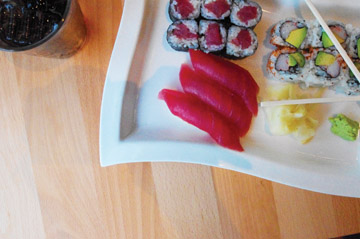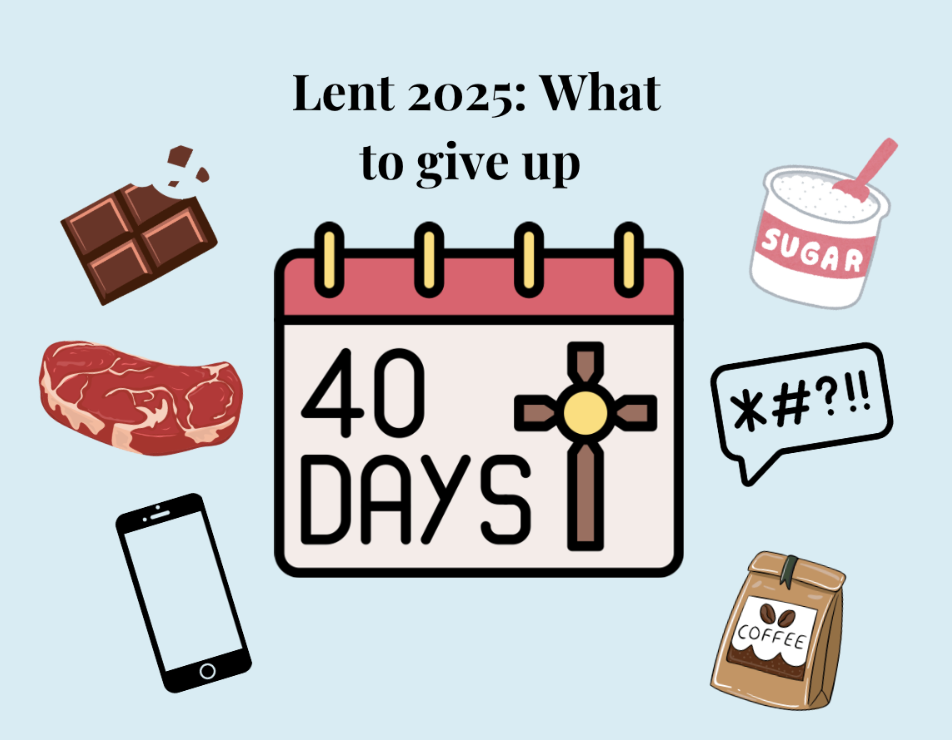
When Morgan Garrison ’11 received the bill after eating lunch at Matsu Sushi with two of her friends, she was surprised to find that a tip had already been calculated and included in her check.
“I noticed at the bottom of the check that there was a 20 percent tip added to our meal cost. It was baffling, especially because we had waited for our food for close to an hour,” Garrison said.
Garrison also believes that the restaurant only adds tips to the bills of teenage customers.
“They only do it to groups of teenagers,” said Garrison, who claims that Matsu never adds a gratuity to groups of adults, regardless of number.
The manager of Matsu Sushi, who asked to remain unnamed, confirmed that the restaurant does add a tip to the bills of adolescent patrons.
“In the event that there is a group of teenagers at a table, the server and I will usually make the decision to add a 15 percent tip to their bill at the end of the meal,” the manager said.
The manager stressed that the gratuity is not applied to regular customers, or teenagers that the restaurant knows are going to leave an appropriate tip.
The origins of Matsu’s policy, according to the manager, are rooted in a trend of light tipping among adolescents.
“The majority of teenagers—not all, but most—just finish their meals and leave. Before we had this policy, between 30 and 40 percent of teens would just walk out without tipping at all. Since we started doing this a few years ago, the number of kids that do that has effectively dropped to zero,” the manager said.
Some students, however, disagree with the policy on the grounds that they feel it is their right to determine how much they want to tip, if at all.
“I was chased out the door of the restaurant for tipping somewhere between 13 and 15 percent. Moreover, Matsu Sushi shouldn’t automatically assume that they ought to receive tips,” Izzy Spada ’12 said.
However, the manager believes that Matsu’s policy is negotiable, and that it is largely driven by economic motives.
“If groups who receive the 15 percent gratuity wish to tip 10 percent because they thought the quality of the service was poor, then that is their right. It’s just that when they don’t tip at all, the waiters come to complain to me because they can’t survive without tips. When people leave the restaurant and don’t tip, we have encountered some ugly scenes,” the manager said.
Other local restaurant representatives include Brian White, manager of Bobby Q’s, located at 42 Main Street, who believes that there is a definite trend among teenagers in regards to tipping.
“Generally speaking, groups of teenagers do tip less than other groups of people. No one has walked out of Bobby Q’s without tipping at all, but the vast majority of younger customers do tip less than 15 percent,” White said.
However, White holds that tipping is an individual issue, and that responsibility for proper etiquette rests upon the customer and his or her upbringing.
“It shows a lack of understanding, more than anything else. Tipping is a something that a parent ought to teach a child. It’s also an important concept to teach and be cognizant of, because this is how waiters make their living,” White said.
White does not agree with Matsu’s policy of factoring in tips to the bills of teenagers, because it generalizes the tipping habits of an entire group of citizens.
“I think that Matsu’s policy is unethical because it’s just stereotyping a group of people. I wouldn’t do it because I don’t think that it’s right to discriminate. It also creates a slippery slope—if it’s acceptable to discriminate against teenagers, then by the same logic it’s acceptable to discriminate against ethnic groups,” White said.
Bobby Q’s gratuity policy, which is printed on its menu, states that parties of eight or more will have an 18 percent tip factored into their bill. Matsu’s policy—which is based upon age, not group size—has drawn additional criticism from students because it is not to be found on the menu.
“It’s really an underhanded way to disguise the gratuity, which is wrong in the first place. The restaurant probably thinks that they can take advantage of kids—their prime customers, no less. Honestly, I’d be surprised if their policy is legal,” Carolyn Hamm ’11 said.
However, according to a group of lawyers working for the website www.justanswer.com, Matsu’s policy is legal, in part because there are no statutes against age discrimination.
“Title VII is the federal law that prevents discrimination based upon race, religion, sex, and national origin. Yet, there is absolutely nothing about age…while it is technically legal, the restaurant’s policy appears to be very bad business,” the legal group replied.
As a result of the tipping policy, some students have elected to stop going to Matsu as a sign of protest.
“The policy that they have in place is completely ridiculous. They don’t deserve to have me as a customer,” Morgan Singer ’11 said.
Justine Abelow ’11 agrees, saying that “it’s as if they think we can’t do math.”
Despite Abelow’s sentiments, several students have expressed that they occasionally forget to tip.
But White is confident that any patron of Bobby Q’s who wishes to calculate a tip does not need a strong command of arithmetic.
“If a customer says that they can’t figure out the tip, there’s an app for it on most phones nowadays. If not, we’ll even supply the customer with a calculator,” White said.














































Brandon • May 28, 2011 at 10:44 pm
These teens are right to protest. What a great statement it would be if all non-tipping teens would boycott nice restaurants.